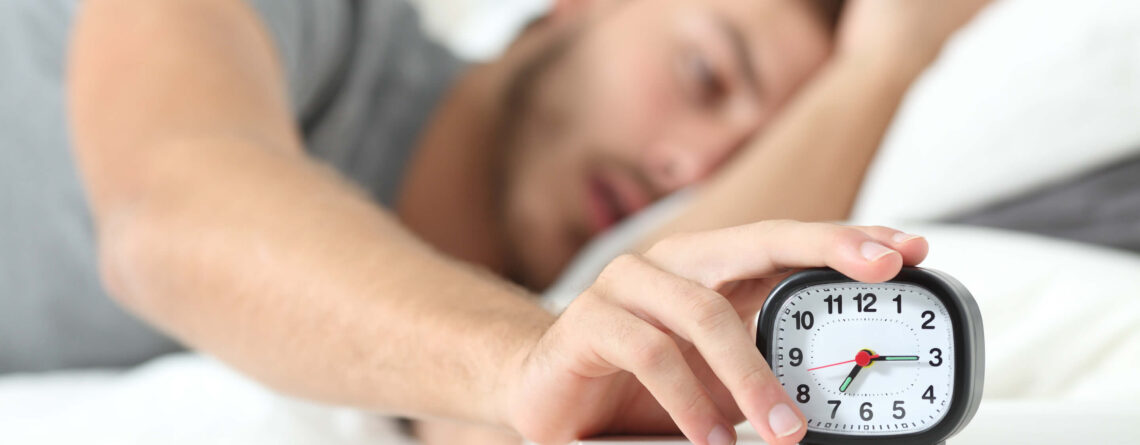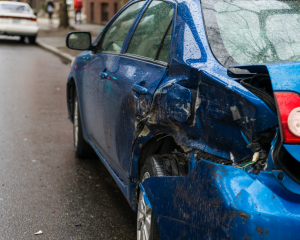If you’ve recently been injured and diagnosed with a concussion, your doctor has likely told you that rest is the most important part of recovery. It was previously thought that it was dangerous to fall asleep right after sustaining a concussion because it was feared to lead to a coma or even death. On the contrary, experts have found that this isn’t the case and that someone who has suffered from a head injury should actually get plenty of rest during the first three to five days.
Of course, this only pertains to patients who can:
- carry on a conversation after the injury
- walk without difficulty
- and do not have dilated pupils.
If you or you know anyone who has suffered a concussion and does not meet the above criteria, they should seek medical attention immediately. If you have been seen by a doctor, discussed treatment options, you’ll need rest to accompany your journey to a full recovery.
It is common to run into problems that will affect your sleep. In this article, we cover how your condition can affect your sleeping pattern and what to look out for. In addition, we’ll share the best tips for getting better sleep and other useful pointers to help you reap the benefits of quality rest after a concussion. We have broken it down into five sections to help you find the exact information you want.
How a Concussion Affects Your Sleep
You may feel more tired or need to sleep during the day when you have a concussion. There are also some post-concussion sleep disorders that can disrupt your normal sleeping habits. These include:
- Hypersomnia (sleeping too much)
- Insomnia (Not enough sleep, difficulty falling asleep and/or staying asleep)
- Narcolepsy (Sudden sleep episodes during the daytime)
- Restless leg syndrome (Uncontrollable urge to move your legs)
- Sleep apnea. (Breathing repeatedly stops and starts during sleep)
Among the five symptoms, hypersomnia and insomnia are related but are opposite situations of the same problem. Hypersomnia and insomnia result from brain injuries, and the other three symptoms are developmental disorders. If you are experiencing any of these syndromes you should bring this up to your doctor as soon as possible. Other common sleep issues that are not as serious include fatigue and feeling tired during the day. After concussions, these sleep issues generally improve as the injury heals though it can take up to a few weeks. If you still have sleep issues after this time frame, talk to your healthcare provider.
Insomnia After a Concussion
Insomnia after a concussion is among the most common long-term problems. Insomnia interferes with recovery in a variety of ways. Sleeping poorly at night makes it hard to focus during the day. Fatigue adds to the effort required to remain alert and engaged, and it may also reduce memory, which is already an issue for many individuals with head trauma.
Research indicates that there are several factors that cause insomnia after a concussion.
This sleep disturbance may be directly linked with injury to the areas of the brain that control sleepwake patterns. Circadian rhythms tell us when to rise and when to sleep. The brain regulates wakefulness or sleepiness through a variety of neurotransmitters including histamine, orexin, and gamma-aminobutyric acid (GABA). These and other neurotransmitters boost wakefulness and suppress it, leading to sleep.
A theory holds that the brain does not produce the appropriate neurotransmitters at the optimal sleep time after a traumatic head injury or concussion. A lack of sleep means that the brain is not switching into sleep mode or not maintaining sleep. Sleep cycles are also disturbed and REM sleep, often associated with dreaming, is disrupted.
Cognitive behavioral therapy (CBT) has been proven effective for some individuals with brain damage that causes insomnia. Some CBT aspects include strict sleep hygiene habits, in which the person goes to bed and gets up at consistent times.
Also, stimulating activities need to be controlled and limited before bedtime. Because the brain is already confused as to when it needs to be alert versus when it needs to be restful, this can further confuse sleep signals.
Is Sleep Medication a Good Idea?
Almost all sleep medications have long-term consequences or side effects. We do all we can to inform you, but the decision lies ultimately with you. When you’re only sleeping three hours per night and your symptoms are out of control, it makes sense to take sleep medication until you can seek treatment for them. But if you can manage your symptoms without resorting to prescription or over-the-counter medication, it is almost always strongly advised. Some patients prefer ZzzQuil since it’s similar to NyQuil. However, it may prevent you from going into REM sleep, so the sleep quality will be poor.
The one pill that is mostly recommended by doctors is Melatonin. There are three main reasons why it is the safer option and effective:
- Melatonin is a hormone that your pineal gland in your brain naturally makes to induce sleep and wakefulness at the right times.
- The Melatonin pill is helpful if your brain is not producing enough at the proper time, but if your sleep sequence is broken after melatonin plays its role, it won’t help.
- In some cases, you may find that taking an extended-release dose is preferable to an all-at-once dose; the timing may also be as important as the kind you take.
Tips That Guarantee Better Sleep After a Concussion
After the first few weeks or days after a concussion, you should follow these recommendations to help you sleep. Discuss how to manage your sleep if your healthcare provider advises cognitive rest immediately after the concussion.
Set a sleep schedule
Make sure to go to bed and get up around the same time every day. On weekends (If you usually stay up later), try not to go to bed more than one hour later than you usually do during the week. Don’t adjust your sleep schedule too much.
Get enough sleep at night
It is recommended for young adults and adults between 18-64 years get in the range of 7-9 hours of sleep. Adolescents’ recommended sleeping amount varies from 8-11 hours. Be sure that you are getting the amount of sleep your age group requires at night.
Get a bedtime routine
Get into the habit of having a consistent bedtime routine. This can include taking a bath or shower and reading before bed.
Don't sleep if you're not sleepy
Make sure you are sleepy before going to bed. If you’re not, you can read a book, listen to soft music, or do other relaxing activities. Opt for something that is both restful and soothing. This will make sure your body is relaxed and your mind distracted.
Can't sleep? Get out of bed
If you are unable to fall asleep after 20 minutes, do something that will help you relax. Don’t do any texting, emailing, or scroll through your phone. Do these things in another room if you need to. Once you feel sleepy again, return to bed.
Avoid naps
If you are able to, avoid taking a nap. If you have to take one, keep it short, less than one hour. Try not to take a nap after 3 p.m. so you can fall asleep at bedtime
Keep a regular schedule
Regular mealtimes, medication times, errands, and other activities help you manage your body clock.
Avoid caffeine
If this isn’t possible, avoid drinking caffeine after lunch so that your sleep will not be disrupted that night.
Improve your sleeping environment
Your bedroom should be calm, dark, and cool. Make it a place where you can relax. A cooler temperature is also better for sleeping.
Keep all electronics out of your bedroom
Your bedroom should be used only for sleeping. Research shows that electronics, including televisions, cell phones, computers, and video games, disrupt sleep.
Good Sleep Hygiene
Good sleep hygiene or “routine for sleep” also includes food, lifestyle, and daily activities. We mentioned avoiding caffeine earlier but you should also avoid alcohol or eating heavy meals about 4-6 hours before bed. This can make it hard to fall asleep because your body will be busy using more energy for digestion. If you’re hungry before bed, eating a small snack with protein is ideal.
In addition, it’s important to make sure you’re getting enough vitamins and minerals during your day.
Magnesium, iron, and B vitamins are crucial for your diet and aid in optimal sleep. Also, getting enough natural light during the day aids in correcting your sleep pattern. Lastly, you should try exercising for 30-60 minutes a day if you are well enough. Do not exercise before bed. We recommend discussing exercise with a doctor before starting if you have additional questions or concerns.
Talk with your doctor or healthcare provider if you continue to have trouble sleeping after sustaining a concussion. During the day, do not drive or operate machinery if you’re feeling sleepy.





